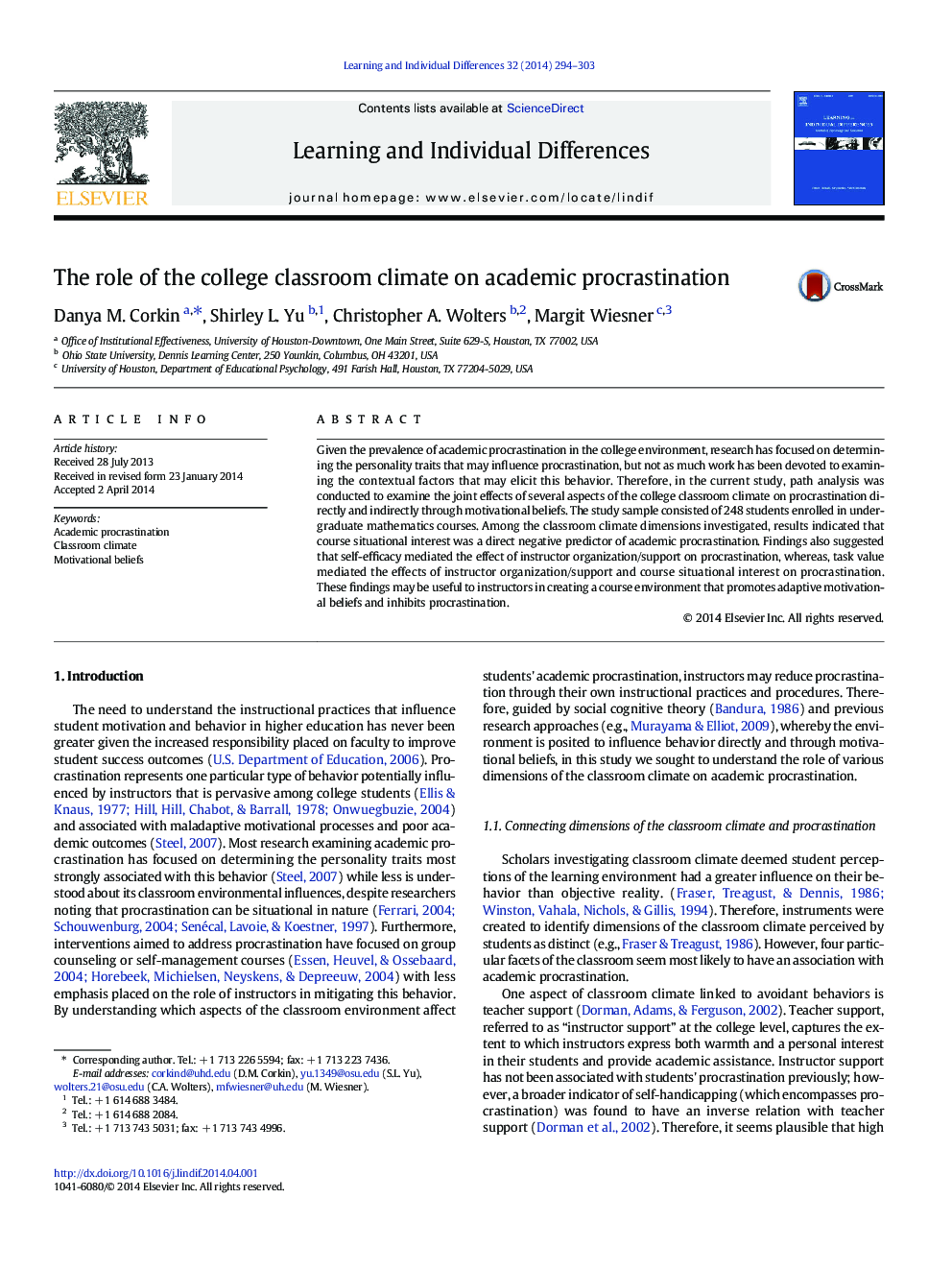| Article ID | Journal | Published Year | Pages | File Type |
|---|---|---|---|---|
| 6845184 | Learning and Individual Differences | 2014 | 10 Pages |
Abstract
Given the prevalence of academic procrastination in the college environment, research has focused on determining the personality traits that may influence procrastination, but not as much work has been devoted to examining the contextual factors that may elicit this behavior. Therefore, in the current study, path analysis was conducted to examine the joint effects of several aspects of the college classroom climate on procrastination directly and indirectly through motivational beliefs. The study sample consisted of 248 students enrolled in undergraduate mathematics courses. Among the classroom climate dimensions investigated, results indicated that course situational interest was a direct negative predictor of academic procrastination. Findings also suggested that self-efficacy mediated the effect of instructor organization/support on procrastination, whereas, task value mediated the effects of instructor organization/support and course situational interest on procrastination. These findings may be useful to instructors in creating a course environment that promotes adaptive motivational beliefs and inhibits procrastination.
Related Topics
Social Sciences and Humanities
Psychology
Developmental and Educational Psychology
Authors
Danya M. Corkin, Shirley L. Yu, Christopher A. Wolters, Margit Wiesner,
